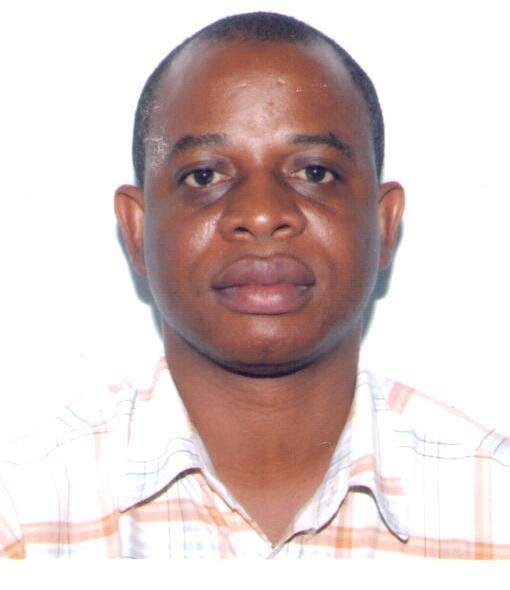Taking care of your mental health

DR MAXWELL ADEYEMI
Very often, people are faced with challenging situations that demand seeking professional help in various aspect of life. But due to perception and poor understanding of what help can be received, or due to misplaced pride and fear of stigmatisation, some people needlessly suffer in silence.
There is growing awareness that mental health problems are common and there may be a need to see mental health professionals in order to receive expert care and interventions. However, several misconceptions and questions continue to swirl around who needs to see a mental health professional, what should the expectations be, how does it work and some opine that they can be fine by themselves and need no professional help.
A mental illness is a disease that causes mild to severe disturbances in thought and/or behaviour, resulting in an inability to cope with life ordinary demands and routines. They include depression, anxiety disorders, schizophrenia, eating disorders and addictive behaviours. Mental health problems may be related to excessive stress due to a particular situation or series of events. As with cancer, diabetes and heart disease, mental illnesses are often physical as well as emotional and psychological. They may be caused by a reaction to environmental stresses, genetic factors, biochemical imbalances, or a combination of these. A mental health concern becomes a mental illness when ongoing signs and symptoms cause frequent stress and affect your ability to function. Signs and symptoms can vary depending on the disorder, circumstances and other factors. Common symptoms include feeling sad or down; confused thinking or reduced ability to concentrate; excessive fears or worries; extreme feelings of guilt; extreme mood changes of highs and lows; withdrawal from friends and activities; significant tiredness; low energy or problems sleeping; detachment from reality (delusions); paranoia or hallucinations; inability to cope with daily problems or stress; trouble understanding and relating to situations and to people; alcohol or drug abuse; major changes in eating habits; sex drive changes; excessive anger; hostility or violence; suicidal thinking. Sometimes symptoms of a mental health disorder appear as physical problems, such as stomach pain; back pain; headache; or other unexplained aches and pains.
Anyone may need to see a mental health professional if they are having difficulties with things such as their thinking, emotions, behaviour, sleep, interpersonal and social relationships, day-to-day functioning, or controlling drug abuse. But mental health professionals do not only see people who have mental illnesses. Some people may seek therapy to resolve problems with anxiety, family and interpersonal functioning, marital difficulties, self-esteem issues, addictive behaviours, anger management issues and so on. Some people also have diagnosable mental health challenges that may require specific treatments and interventions.
Some people may need a coach, while others may need a psychologist or a psychiatrist. An although they may not be doing the same thing, some of the services will overlap because they all contribute towards helping individuals live a happier and more productive life.
A coach is not a health care or medically qualified professional, but is someone with training and certification to understand individual as well as organisational difficulties, and how to guide and help overcome them. They serve as expert guides to help people actualise their life goals, meet their targets and be more productive. However, for a coach to be effective, it is pre-supposed that the client is in good health and there are no background mental health problems. They are increasingly becoming very important in helping individuals and organisations become more productive and happier with themselves.
A psychologist is a professional who has had a first degree in the social sciences, usually in psychology, counselling or education, and has received postgraduate training at in the specialised field of clinical psychology. They are experts at understanding human behaviour across the lifespan, understanding and detecting abnormalities in behaviour, personality or relationships.
The specialisation may also be in other fields of psychology, such as organisational, sports or developmental psychology. But those commonly referred to as "therapists" are those that have specialised in clinical psychology. They are especially adept at the use of psychological assessments and instruments for evaluating personality, intelligence quotients as well as provision of specialised therapies. But because they are not medical doctors, they do not prescribe medications. When patients are severely ill, or those who are not getting better with therapy alone are referred to psychiatrists for additional use of medications.
Psychiatrists are medical doctors who have undergone postgraduate specialisation in the field of psychiatry. They are also trained to identify mental health problems as well as provide treatment interventions that may include use of clinical psychology skills, as well as the prescription of medications where it is deemed necessary.
Psychiatrists are relevant across the spectrum of mental health promotion, prevention, early identification and treatment of disorders as well as rehabilitation.
Mental health professionals do not wield a magic wand. You need to be actively engaged as they try to help you understand issues such as previous trauma, unresolved conflicts and negative patterns of thinking and responding to situations that may be causing your present distress and unhappiness.
The overall goal is to gain insight into the unhelpful patterns of dealing with situations, and to learn better and more positive ways of thinking and responding to such situations. And where there are identifiable mental health problems, to receive specific therapies and treatments to facilitate recovery and gain mastery over addictions too.
If you, a friend, a co-worker or a relative needs help with their mental health, please seek needed help.
Contact Dr Maxwell on 363-1807 or 757-5411.


Comments
"Taking care of your mental health"